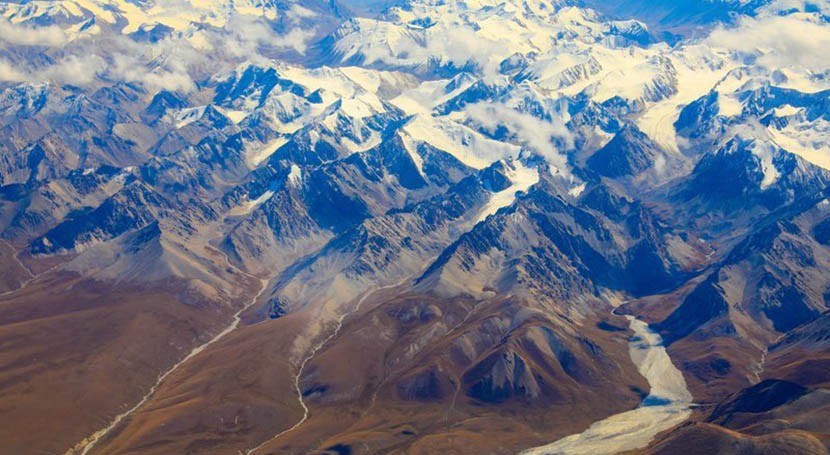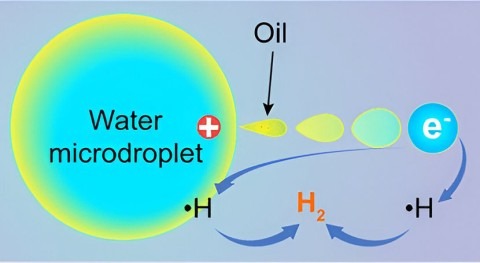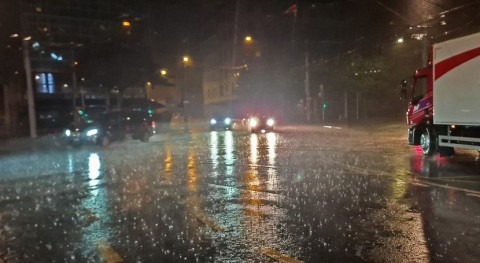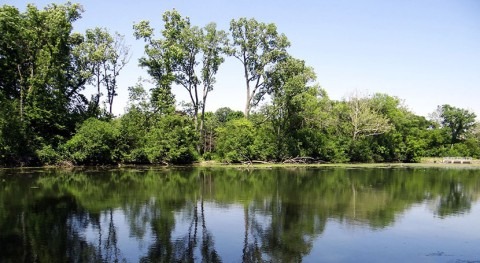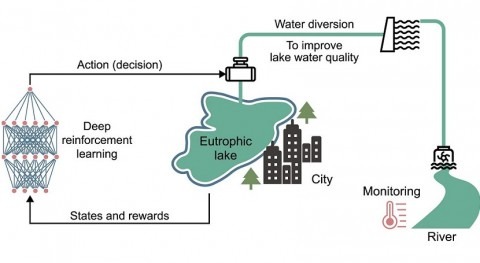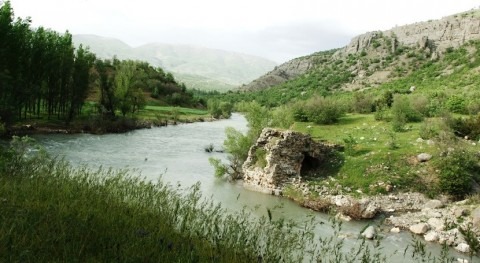Central Asia is highly agrarian, and most of the croplands rely on irrigation due to sparce precipitation. How this irrigation affects the regional climate in Central Asia however, is not clear.
To answer this question, a joint research group led by Prof. Feng Jinming from the Institute of Atmospheric Physics (IAP) of the Chinese Academy of Sciences and Dr. Wu Liyang from Henan University modified the irrigation module in the regional climate model and the Weather Research and Forecasting model (WRF). They carried out abundant numeric simulations to assess the effects of irrigation on the local surface air temperature, precipitation, and surface heat fluxes.
Their research was published in the Journal of Geophysical Research: Atmospheres
"An irrigation module has been coupled to the WRF model since version 4.2 in 2020. However, it has two shortcomings; one is that it uses fixed time interval for irrigation, such as irrigating every five days, while the actual irrigation is flexible," said lead author Dr. Wu. "The other problem is that irrigation occurs in the whole model grid, which is also inconsistent with the reality. There are always multiple land use types in a model grid. Only croplands need irrigation, and other land use types do not need irrigation."
Therefore, their study has made two corresponding improvements to the original irrigation module. One is to use a dynamic irrigation strategy, in which irrigation is triggered by the water deficiency of soil. The other is to use a sub-grid irrigation strategy, that is, irrigation only occurs in the cropland part of a model grid. Compared to the experiment without irrigation, the simulated surface temperature, surface air temperature and soil moisture in the experiment with the "dynamical + sub-grid" irrigation strategy are closer to the observations.
The researchers found that irrigation significantly increased the latent heat flux and meanwhile decreased sensible heat flux, which in turn led to a significant decrease in surface temperature and daily maximum temperature. Soil evaporation and crop transpiration contributed roughly equally to the increased latent heat flux. They also found that irrigation led to higher daily minimum temperatures.
"It's because irrigation increases soil moisture and soil thermal conductivity increases accordingly. More energy is therefore transferred to soil during the daytime, and then released at the nighttime, heating the surface atmosphere," said Prof. Feng, corresponding author of the study.
A highlight of this study is that the numerical simulations indicate that irrigation leads to increased precipitation in the mountainous areas in central Asia. There are two main irrigation areas in central Asia, the Fergana Basin and the northern slope of the Tianshan Mountain in Xinjiang, both of which are mountain-basin terrains, where upslope winds that move from valley to hillside prevail during the daytime. Irrigation leads to an increase in the water vapor in the basin. The upslope wind during the daytime brings the abundant water vapor above the basin to the mountains, and the water vapor climbs up the hillside, and condenses to form precipitation.
"This improved irrigation module can be further used to predict the impacts of future climate change on the irrigation amount in central Asia, which has important reference value for the future water resources allocation in this region," said Prof. Feng.


